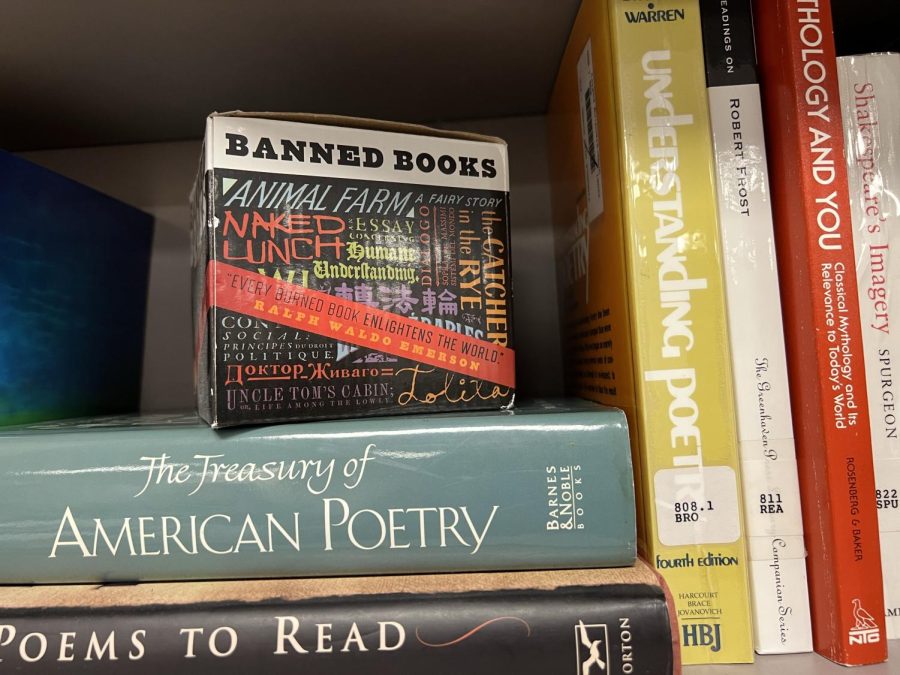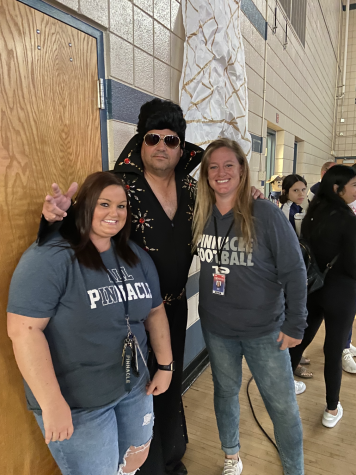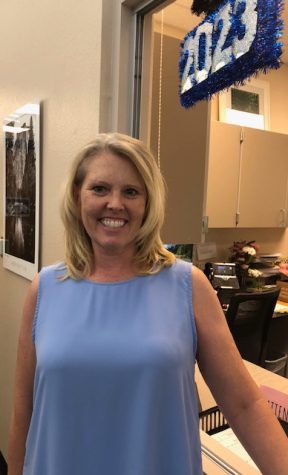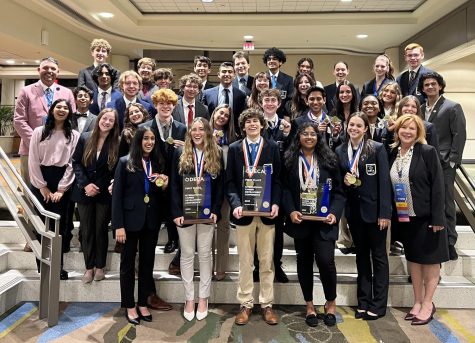Banning Books?
PVUSD Responds to Challenged Book Incident
Banned books became a hot topic this school year, with many districts reviewing controversial books in classrooms. This recently came to a spotlight in the media as Pinnacle’s longtime rival and fellow Paradise Valley Unified School District (PVUSD) high school, Horizon High School (HHS), became caught in controversy.
At HHS, an AP English class was assigned the nonfiction book So You’ve Been Publicly Shamed for summer reading for incoming juniors. The book sheds light on how public shaming came back in style with the rise of social media and how it affects the public. Although not the first year on the summer reading list, the book included topics that some parents and students found offensive.
“Some passages include quotes and blog posts taken from the internet that describe violent sexual acts or crude jokes,” said NBC 12 News.
Aware of the concern at another district school, PHS adminstration and teachers reviewed the assigned titles in all English classes to discover any potential concerns for PHS parents or students.
“What we did when the issue at Horizon came up is we went through our own literature lists, and made sure that all of them were on the district-approved list,” said PHS Principal Chad Smith. “So we cross-referenced those two lists to make sure we didn’t have any books that were outside of what was already approved by our district office.”
PVUSD quickly released a statement in hopes of calming parents and students.
“Students were asked to read one of the two books over the summer in preparation for a classroom writing prompt, which took place in August. [So] You’ve Been Publicly Shamed has since been removed and is no longer an option in the class,” said Becky Kelbaugh, Communications Specialist for PVUSD.
As a long-standing practice prior to this year, books assigned in district AP classes remained exempt from PVUSD’s official Literature List of books approved for use in other English Language Arts classes in all grades. As college-level courses, AP English classes often studied books previously used on the AP English exams and college reading lists.
In response to the situation at HHS, Jon Ronson, the author of So You’ve Been Publicly Shamed, released a statement. “I am especially sorry that this is happening because I take pride in the fact that my books are well-regarded in many different communities. It’s because within each of those communities are many people who care about being kind and ethical to our fellow humans, especially when they’re suffering the psychological trauma of a social shaming,” Ronson said.
In reaction to the events at HHS, PVUSD reviewed its practice district-wide and created a Literature List committee for the AP English courses, college-level English classes for high school students.
This committee consisted of parents, principals, district adminstrators and teachers. Each representative received a book recommended or requested by AP teachers from all of the high schools to read and score based on the criteria they received. The criteria contain two major categories: “Educational Value” and “Appropriate Content,” which also divides into sub-criteria including “Aligns with educational standards and curriculum”, “Represents High Quality Literature”, “Represents Diverse Literature” and “Subject Matter is Appropriate for Grade Level.” Some of the criteria contained things like “Standards Aligned”, “Thought Provoking Themes and Ideas”, “Diverse Characters and Perspectives” and “Appropriate for Read-aloud and Discussion”. One of the representatives, Shannon Wood, teaches AP and high school level courses at PHS.
“We want to add approved AP Literature texts to the district literature list. So we have a literature list with all of the titles that are approved to be taught in our classrooms in the district, from K all the way up,” Wood said. “And we just didn’t have a list for AP Literature, and so we are now adding lists based on teacher recommendation. We’re adding titles to that list that AP teachers can teach in their classroom,” said Wood.
After the representatives on the committee read their assigned book, they graded it based on provided criteria and gave it a score from 5 to 1 in each of the 4 categories. Based on the combined scores in the Educational Value and Appropriate Content categories, a color was assigned to the book. Green represented “4+ in educational value and 4+ in appropriate content.” Orange stood for “above 2 in educational value but may score below 4 in appropriate content,” and red indicated titles rated as “below 2 in educational value or contains inappropriate or offensive material”.
At the May 19 Governing Board (GB) meeting, parents, students and teachers spoke to the Governing Board before they voted to accept the recommendations of new books to the new AP Literature List, effective beginning next year if approved. Most spoke in favor of allowing choice with the option for parents or students to choose an alternate text if assigned one labeled as “sensitive” for class or summer reading, though a few held concerns regarding two of the suggested titles. The SlaughterHouse Five by Kurt Vonnegut. The GB voted unanimously to designate the novel as “sensitive”, not previously designated as such by the committee after their review of the book. However, most of the nearly one-hour discussion centered around the inclusion of A Handmaid’s Tale by Margaret Atwood as a “sensitive” title. Ultimately, two of the GB members voted against adopting the list of new titles due to concerns over the novel, but the final vote of 3 – 2 approved the full list of nine recommended titles, including A Handmaid’s Tale.
This situation of controversial and sensitive books raises a bigger question: how should schools handle books that some find to be inappropriate? Literature committees and schools face the challenge to work together in hopes of answering this question for their communities.
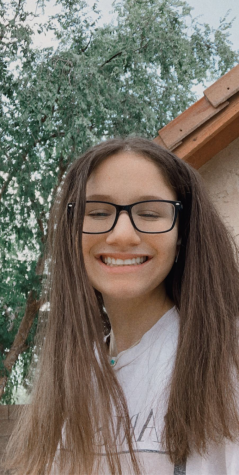
"Magazine has been so much fun, especially the writing. I’ve loved doing research and spending my time talking to people."

